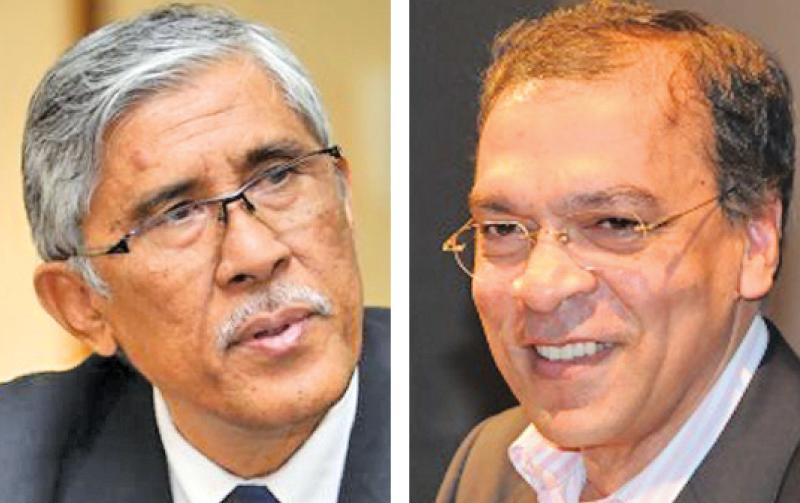
For almost three days, experts on anti-corruption from several countries sat together to review and discuss each country’s experiences from around the world, on key requirements to ensure the independence and effectiveness of each country’s anti-corruption agencies and the challenges they face, during the Global Expert Group Meeting on the Jakarta Principles held in Colombo hosted by the Commission to Investigate Allegations of Bribery or Corruption (CIABOC).
Some of the salient features widely discussed, and experts arrived at a consensus on the agencies’ independence and governments’ long-term commitment to ensure the independence of the anti-corruption agencies, financial independence and realization that the achievement of these set goals is long term, which requires the patience of all stakeholders.
Financial independence, discussed at length highlighted the impracticalities the agencies face when they have to depend on the Treasury (government) for their budgetary allocations and the need for each agency to have financial autonomy.
Experts who were also present suggested introducing a mechanism where monies and assets that are confiscated through convictions on acts of corruption could be routed to the anti-corruption agency for its budgetary allocations.
Speaking to the Sunday Observer, Abu Kassim, Director General for Malaysia’s National Centre for Governance Integrity and Anti-corruption, an independent organization responsible for advising the Prime Minister and the Government on policies and strategies in fighting corruption, said, financial independence is of utmost importance for the independence of an anti-corruption agency. Kassim was the head of Malaysia’s Anti-corruption Commission that initiated investigations into the former Prime Minister Razak and was successful in concluding the investigations, and finally, charging the former Prime Minister for criminal breach of trust.
As the Director-General for Malaysia’s National Centre for Governance Integrity and Anti-corruption, Kassim explained the need for every government to ensure that anti-corruption is made a main factor in the governing policies and given effect to, another policy formulating body that Sri Lanka could look into introducing to establish, in order to strengthen the anti-corruption framework of the country.
“We are entrusted with compiling a comprehensive anti-corruption plan for the Government, for five years. We are also entrusted with ensuring that the anti-corruption entities in the country are transformed into more independent entities,” he said. Commending the CIABOC’s efforts, especially, in light of its recent successes, he said, its initiative to reform the laws on anti-corruption agency based on the Jakarta Principles will provide for a more independent and dynamic functioning.
However, he also pointed out that under the current setting Sri Lanka has neglected prevention and awareness.
Awareness and prevention are not provided for under the Sri Lankan law. The effective anti-corruption agency has a three prone perspective; awareness, detection and investigation. It is equally important to look into closing that opportunity for corruption. You may catch a person involved in corruption, but, if you don’t look at the procedures, rules and regulations that encourage corruption it wouldn’t solve the problem,” Kassim said. Jakarta Principles which take a holistic approach into making anti-corruption agencies more independent, calls for a frame, among other work including the freedom to hire and fire, authority over resources, remuneration, immunity, continuity and collaboration.
Iftekhar Zaman, Executive Director, Transparency International Bangladesh, also in the International Board of Directors, Transparency International speaking to the Sunday Observer said, the main objective of the Jakarta Principles was to come up with some key indicators for anti-corruption agencies as a stepping stone.
However, he says, his expectation was and is, that Jakarta Principles are very good, more like wish lists but there are no specific guidelines or procedures though, which ensures that the agencies comply with the principles set out.
“Sri Lanka now has the full blessing of the President of the Republic, so it can really move on and expand the institution to exercise its mandate more vigorously,” Zaman said.
He went on to state that they are hopeful of the CIABOC adopting the legal principles set out in the Jakarta Principles, especially, in light of the President’s endeavour to bring Sri Lanka to Number 1 position in anti-corruption.
It was also pointed out by representatives that a shortcoming of the Jakarta Principles is that it doesn’t address the issue of the other components of the criminal justice system, such as, the independence of the prosecutor.
“You may have an independent anti-corruption agency but if you have a prosecutor who practices selective prosecution you may have a problem in being effective. In order to be effective, all components, investigators, prosecutors and the judiciary involved in the investigation must have the same spirit,” Abu Kassim Director General for Malaysia’s National Centre for Governance Integrity and Anti-corruption explained.
Director General, CIABOC, Sarath Jayamanne, was very optimistic of the conference. He said, it was a success and a dialogue that managed to bring in changes that are more in line with the other countries, as well as timely with technology.
“We will be amending our laws very soon to ensure that CIABOC is made more strong and independent,” Jayamanne assured.
